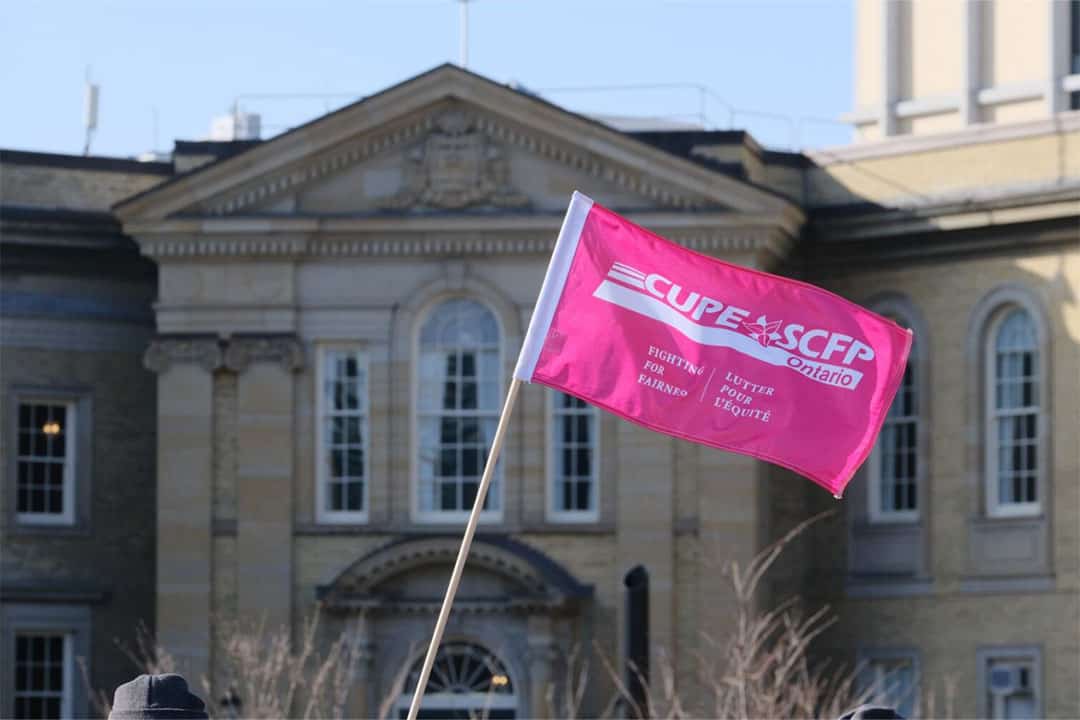Throughout the week of March 4, the bargaining team for the Canadian Union of Public Employees (CUPE) Local 3902 Unit 1, CUPE Local 3902 Unit 5, and CUPE 3261 Full-Time/Part-Time (FTPT), 89 Chestnut, and Casual units came to tentative contract deals with the U of T administration. This was the first time these unions had employed joint bargaining at U of T.
This joint campaign was called “We are U of T” and called for an end to “unlivable wages, job insecurity, and burnout from overwork.” Collectively, the campaign represented over 8,000 workers at U of T in different work areas.
“Historic” deals
CUPE 3261 released details of the tentative agreement to the public on March 4. While the deals are similar to recent wage settlements U of T offered to other unions, and may not meet some demands from the membership, they are significantly better than previous agreements. In its published summary of the tentative agreement from March 6, CUPE 3261 explains, “the Tentative Agreements won in both CUPE 3902 and 3261 include substantial financial wins that have never previously been achieved in a single Collective Agreement, and that [have been] historically rejected”.
Unsurprisingly, unions demand a pay rise comparable to the inflation level to catch up to their losses from Bill 124, which was installed in 2019 and only declared unconstitutional in 2022. Bill 124 restricted salary increases to no more than 1 per cent of total remuneration every three years. This was 16 per cent for CUPE 3902 Unit 5 and 19 per cent for Unit 1. However, the tentative agreement only offered a 12.8 per cent wage increase over three years for all four locals except CUPE 3261 Casual.
On the other hand, U of T’s offers raised the minimum wage for postdoctoral researchers from $36,000 to $50,000. Additionally, they fulfilled the CUPE 3261 FTPT and 89 Chestnut units’ demand for the minimum living wage to be increased from $16.55 to $25 per hour, and will be implementing the minimum wage for the Casual unit to the demanded $20 per hour by 2025. They also included many other details and improvements regarding benefits and compensation, such as a substantial increase in sick leave for the 89 Chestnut unit from three days to 15 weeks.
What is behind the deals?
The “historic” nature of the deals is no coincidence: it mirrors exactly the historic nature of the unity and solidarity shown by the CUPE locals.
In a previous statement to The Varsity in January 2024 regarding negotiations with the university, CUPE 3261’s President Luke Daccord discussed concerns that U of T might use “pattern bargaining” tactics, writing, “U of T will bargain with some of the bigger unions and groups on campus first, and then whatever is achieved there they will force on the rest of us.” He argued that this approach to bargaining results in much lower wage agreements that disproportionately affect the lowest-paid and smaller unions.
The approach of “pattern bargaining” that Daccord mentioned effectively represents a ‘divide and conquer’ scenario, which limits bargaining power. Bigger locals naturally have more bargaining power because their larger membership allows for more funding and the ability to bargain, fund, and maintain a strike. Most importantly, they create much more disruption during a strike. This makes a strike much more costly and thus creates more incentives for the university to agree to the union’s demands.
This threat of withholding labour power determines bargaining power, and thus bargaining outcomes. Therefore, bargaining jointly with other unions and locals, which CUPE 3902 and 3261 did, is meant to improve bargaining outcomes by increasing the size and strength of the union. In their words: “United we win.”
Research on industrial relations tends to confirm that a union’s size and militancy — its willingness, preparedness, and ability to strike when demands are not met — contribute to a better contract. For example, a study conducted by Craig W. Riddell in 1980, using data from 1953–1973 and including 2,360 contracts from 18 Canadian firms, found that a strike and its length both positively influence wage changes, concurring with previous evidence.
It is no surprise that U of T made significant movement in offering counter-proposals after historic strike mandate votes and that it sent a “historic deal” minutes before the unions entered a legal strike position. Had a strike happened, the unions might have seen even better offers. It’s now up to the membership to discuss and vote on the tentative agreement.



No comments to display.